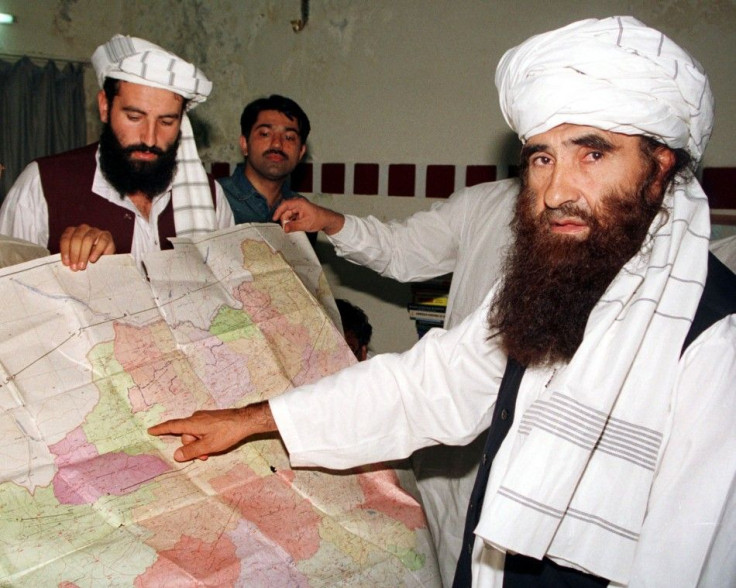Officially 'Terrorists': The Haqqani Network, And Why The U.S. Blacklisted Them

U.S. Secretary of State Hillary Clinton signed an order on Friday that formally designates the Taliban-linked, the Haqqani network, as a Foreign Terrorist Organization (FTO).
The decision to do so, according to the New York Times, represented the culmination of two years of debate as to whether such a classification would effectively cut off the group's funds, or if it would simply serve to further strain relations with Pakistan, where much of the network operates.
The Haqqani network is allied with the Taliban, which is currently operating mostly in Afghanistan, and fighting against the U.S.-led NATO forces. However, the Haqqani originally emerged as a kind of "offspring" of the CIA and Pakistan's Inter-Services Intelligence as a force to fight against Russia in the Soviet war in Afghanistan.
The group benefitted greatly from the nearly $12 billion in foreign aid that came into Afghanistan during the Soviet-Afghan war that supported the insurgency. They may still benefit from a relationship with Pakistan intelligence agencies, and still receive sponsorship and support from the Pakistani government.
Haqqani emerged as its own distinct group in 1994, and has an estimated 10,000-15,000 operatives in southeast Afghanistan and Pakistan. It is mostly led by the father-son pair Jalaluddin and Sirajuddin Haqqani.
Today, the U.S. military considers it both one of the most resilient militant networks, and one of the most dangerous to American interests in the region. The group "has been at the forefront of insurgent activity in Afghanistan, [and] responsible for many high-profile attacks," according to the U.S. State Department.
In July 2010, the U.S. Treasury Department passed an executive order freezing any U.S.-held assets of several Haqqani leaders and financers who were known associates of Al-Qaeda, Osama Bin Laden, or the Taliban. At the time, the State Department Assistant Press Secretary Philip Crowley told the press, "All United Nation members must implement a travel ban restriction, asset freeze, and arms embargo against these individuals. Pakistan, as a UN member, must implement this international action."
On August 30, 2012, the U.S. announced it had killed Badaruddin Haqqani, the younger brother of Sirajuddin Haqqani, and one of the head commanders of the network
The order Secretary Clinton signed Friday was welcomed by the Afghan government as a good step toward "tougher international action." A spokesman for the Afghan government, Sediq Sediqqi, told the New York Daily News: ""This will be a major step by the United States against the Haqqani network who are still plotting for dangerous and destructive attacks against us."
In the past year, pressure had been growing on the State Department from Congress to make the FTO designation, and on Thursday the White House said they supported the blacklisting.
"F.T.O. designation could reduce a critical capability of the Haqqani Network by increasing the cost of doing business, reducing access to capital, and constraining the network's financial resources, thereby limiting their freedom to operate in a local, regional, and international context," wrote Jeffrey Dressler, analyst at the Institute for the Study of War, in a recent paper.
"If the White House is serious about stopping al-Qaeda and other like-minded militant groups," wrote Gretchen Peters, the author of several books about terrorist groups, in a Washington Post op-ed, "leaving the Haqqanis in place after 2014 is not an option. The Haqqanis provide safe haven to groups plotting to attack the U.S. homeland and are terrorists in their own right."
© Copyright IBTimes 2024. All rights reserved.





















